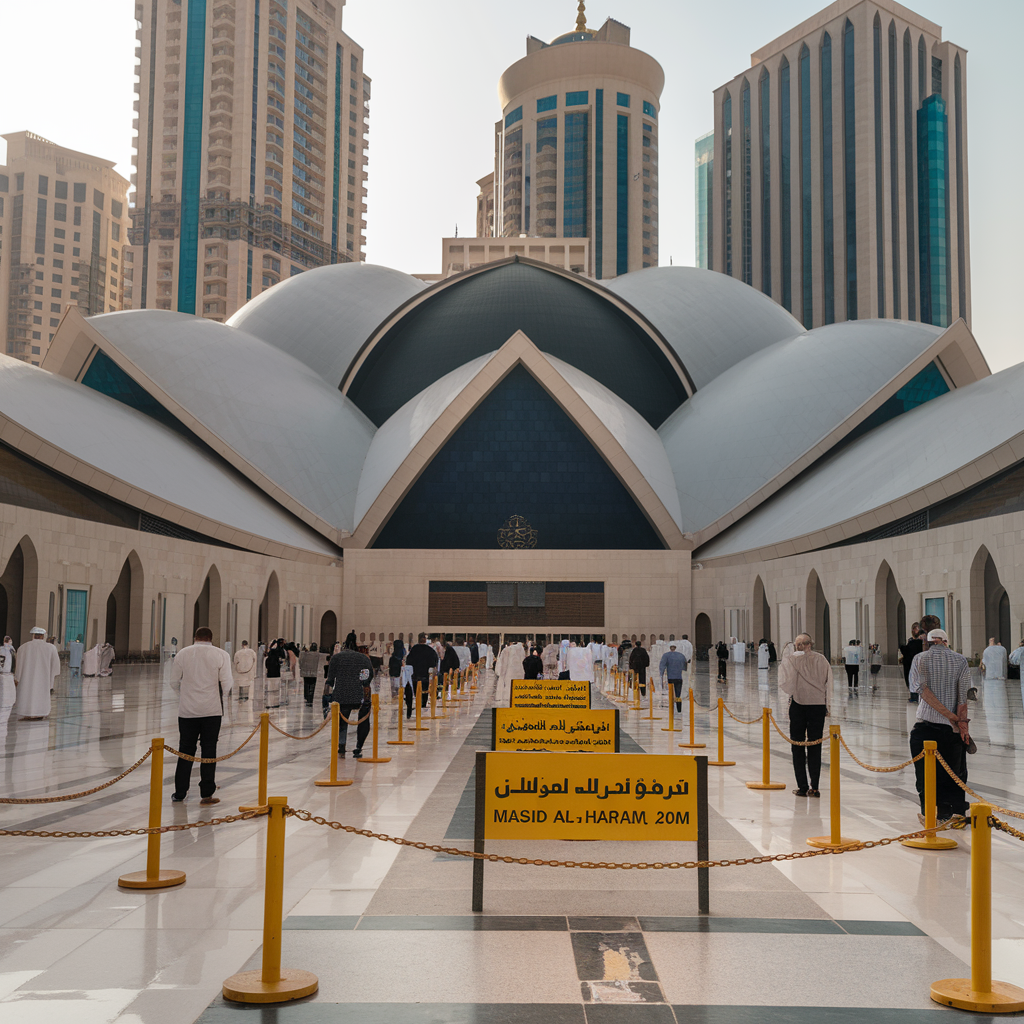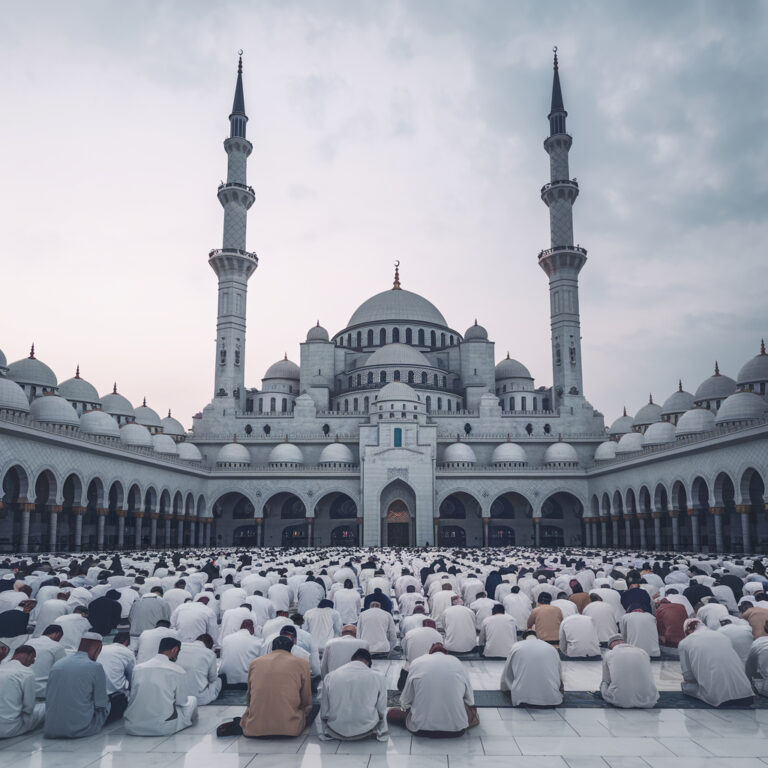Ramadan is one of the holiest months in Islam, a time for Muslims to purify their souls and grow closer to Allah. In Dubai, the month of Ramadan is observed with devotion, community gatherings, and an unwavering commitment to worship. One of the most important aspects of Ramadan is the prayer timetable, which guides Muslims on when to perform their daily prayers and fasting rituals. This article will explore the significance of Ramadan in Islam, the five daily prayers, and how the Ramadan prayer timetable works in Dubai.
The Five Pillars of Islam
Before we delve into the specifics of the Ramadan prayer timetable, it’s important to understand the Five Pillars of Islam, which serve as the foundation of a Muslim’s faith and practice:
- Shahadah (Declaration of Faith)
The Shahadah is the testimony of faith, declaring that there is no god but Allah, and Muhammad (PBUH) is His final prophet. - Salah (Ritual Prayer)
Salah is one of the core practices of Islam and is performed five times a day. During Ramadan, Muslims follow a strict prayer schedule, which includes additional prayers. - Zakat (Charity)
Zakat, or almsgiving, is a mandatory act of charity for Muslims who meet the necessary criteria of wealth. - Sawm (Fasting)
During Ramadan, Muslims fast from dawn until sunset as an act of spiritual purification and self-discipline. - Hajj (Pilgrimage to Mecca)
The pilgrimage to Mecca is obligatory once in a lifetime for Muslims who are physically and financially able to do so.
Understanding Ramadan Prayer Timetable
During Ramadan, the regular prayer schedule is adjusted to accommodate fasting. Muslims in Dubai follow the prayer timetable that begins before dawn (Fajr) and continues until after sunset (Maghrib), marking the moments when they can break their fast. The timetable includes five essential prayers:

- Fajr (Dawn Prayer)
Fajr is the first prayer of the day, offered before dawn, and it is the start of the fast. - Dhuhr (Noon Prayer)
Dhuhr is performed just after midday and marks the second prayer of the day. - Asr (Afternoon Prayer)
The Asr prayer is held in the afternoon, and it is performed before sunset. - Maghrib (Sunset Prayer)
Maghrib prayer is offered right after sunset and signals the time to break the fast (Iftar). - Isha (Night Prayer)
Isha is performed after twilight and is followed by the Taraweeh prayers during Ramadan, which are extra prayers performed at night.
Key Aspects of Ramadan Prayer in Dubai
During Ramadan in Dubai, the prayer times slightly vary based on geographical location and date. Since Dubai is located in the UAE, the time for prayers is adjusted to the local region. Many mosques in Dubai follow a unified prayer timetable, but the exact prayer times can differ slightly, depending on the exact location.
Ramadan Prayer Times Table for Dubai (2025)
To help Muslims in Dubai observe their daily prayers accurately during Ramadan, here is an example of a Ramadan Prayer Timetable for Dubai for 2024. The table includes the times for Fajr, Dhuhr, Asr, Maghrib, and Isha.
| Date | Fajr | Dhuhr | Asr | Maghrib | Isha |
| 1st March | 4:45 AM | 12:20 PM | 3:30 PM | 6:40 PM | 8:00 PM |
| 2nd March | 4:46 AM | 12:21 PM | 3:31 PM | 6:41 PM | 8:01 PM |
| 3rd March | 4:47 AM | 12:22 PM | 3:32 PM | 6:42 PM | 8:02 PM |
| 4th March | 4:48 AM | 12:23 PM | 3:33 PM | 6:43 PM | 8:03 PM |
Note: The times for the month of Ramadan will change daily as the duration of daylight varies.
Special Ramadan Prayers
In addition to the five obligatory prayers, there are special prayers during Ramadan that help deepen the connection with Allah:
Taraweeh Prayers
Taraweeh prayers are special prayers offered after Isha during Ramadan. They are voluntary prayers and serve as a way to increase devotion during the holy month. Taraweeh is typically performed in congregation in mosques, with the Imam leading the prayers.
Tahajjud Prayer
Tahajjud is another special prayer performed during the last part of the night. Though not obligatory, it is highly encouraged, especially in the last ten days of Ramadan. Many Muslims believe that this prayer is an opportunity for special blessings from Allah.
Fasting in Ramadan
Fasting (Sawm) during Ramadan is one of the Five Pillars of Islam. Muslims fast from dawn until sunset, refraining from food, drink, and other physical needs during daylight hours. The fast is broken at sunset with the Maghrib prayer, followed by Iftar, a meal that includes dates, water, and other traditional foods.
It’s important to note that Muslims in Dubai, as in other parts of the world, follow the same basic rules for fasting, though local customs may influence the types of food served at Iftar. Popular Iftar meals in Dubai include dates, samosas, hummus, and various local desserts.

Observing Ramadan in Dubai
Dubai, with its large Muslim population, becomes particularly lively during Ramadan. The mosques are filled with worshippers during the prayer times, and there is a sense of community as Muslims come together for Iftar meals. In addition to religious observances, the city offers various events, including special Ramadan markets, charitable initiatives, and cultural festivals.
Conclusion
Ramadan is a sacred month for Muslims, and understanding the prayer timetable in Dubai helps facilitate a smooth and organized observance. From the early morning Fajr prayer to the night-time Isha prayer, each prayer is an important part of the day. The prayer times are a reminder of the continuous bond between a Muslim and Allah, and the rituals of fasting, charity, and prayer purify the soul and lead to spiritual growth.
By following the Ramadan prayer timetable and engaging in the Five Pillars of Islam, Muslims in Dubai can make the most of this blessed month and deepen their faith. As Ramadan continues to unite Muslims across the world, it also brings communities together in Dubai, showcasing the city’s vibrant Islamic heritage and commitment to spiritual growth.
This article incorporates keywords like Ramadan Prayer Timetable, Dubai, Five Pillars of Islam, Taraweeh Prayers, Iftar, and Sawm, which will help with SEO. You can use this structure and adapt the table to match the actual prayer times for 2024.
FAQs
1. What is the Ramadan Prayer Timetable?
The Ramadan Prayer Timetable outlines the specific times for the five daily prayers (Fajr, Dhuhr, Asr, Maghrib, and Isha) during the holy month of Ramadan. In Dubai, the times slightly change each day depending on the sunrise and sunset, ensuring that Muslims can accurately observe their fast and prayers.
2. How do I find the accurate Ramadan prayer times for Dubai?
You can find the accurate Ramadan prayer times for Dubai on various Islamic websites, mobile apps, or by referring to local mosques that provide daily prayer timetables. The times may also be published in local newspapers or available in community centers throughout Dubai.
3. What are the five daily prayers in Islam?
The five daily prayers are:
- Fajr: Performed before dawn.
- Dhuhr: Performed after midday.
- Asr: Performed in the afternoon.
- Maghrib: Performed at sunset, marking the time to break the fast during Ramadan.
- Isha: Performed after the twilight has disappeared.
4. What is Taraweeh and when is it performed during Ramadan?
Taraweeh is a special prayer performed after the Isha prayer during Ramadan. It consists of additional rakahs (units of prayer) and is a highly recommended act of worship during the holy month. Taraweeh prayers are typically performed in congregation in mosques.
5. When does fasting begin and end during Ramadan?
Fasting begins at Fajr (dawn) and ends at Maghrib (sunset). Muslims abstain from food, drink, and other physical needs during daylight hours, and they break their fast with Iftar after the Maghrib prayer.
6. Can I perform Ramadan prayers at home, or do I have to go to the mosque?
While it is encouraged to perform prayers in the mosque, especially for men, you can also perform the prayers at home. However, for Taraweeh prayers, it is recommended to pray in the mosque if possible, as it brings more spiritual benefit when performed in congregation.
7. What should I do if I miss a prayer during Ramadan?
If you miss a prayer due to forgetfulness or another valid reason, you should perform the missed prayer as soon as possible (Qadha) before offering the next prayer. This is important in Ramadan and throughout the year to maintain the consistency of your worship.
8. What is the significance of fasting during Ramadan?
Fasting during Ramadan (Sawm) is one of the Five Pillars of Islam. It is a spiritual practice to purify the soul, practice self-discipline, and show empathy for the less fortunate. Fasting also helps Muslims grow closer to Allah by increasing devotion through prayer and worship.
9. Can I eat or drink during the day in Ramadan?
No, eating or drinking during daylight hours is prohibited during Ramadan, except for specific exceptions such as sickness, pregnancy, breastfeeding, or travel. Muslims can eat before dawn (Suhur) and after sunset (Iftar), with the Iftar meal breaking the fast.
10. What is Iftar, and what foods are typically consumed during Iftar in Dubai?
Iftar is the meal consumed to break the fast at sunset, after the Maghrib prayer. In Dubai, Iftar meals often include dates, water, fruits, samosas, hummus, and local delicacies like machboos (spiced rice) and luqaimat (sweet dumplings).
11. Are there any special activities in Dubai during Ramadan?
Yes, Dubai becomes especially vibrant during Ramadan with cultural events, Ramadan bazaars, charity initiatives, and special Ramadan-themed performances. Many hotels and restaurants offer Iftar buffets, and there are also evening prayers and community activities in the mosques.
12. How do I determine the Nisab for Zakat during Ramadan?
Zakat, which is obligatory charity, is calculated at 2.5% of a Muslim’s wealth that exceeds a certain threshold called Nisab. The Nisab is determined based on the value of 85 grams of gold or its equivalent in money. Muslims must give Zakat to the poor and needy, especially during Ramadan.
13. How does the prayer timetable change during Ramadan?
The prayer times in Ramadan shift daily as the days lengthen or shorten. The Fajr time will be earlier as Ramadan progresses, and the Maghrib time will get later, depending on the sunset time.
14. Can I perform Tahajjud prayer during Ramadan?
Yes, Tahajjud is a voluntary prayer that is encouraged, especially during the last ten days of Ramadan. It is performed after Isha and before Fajr. Many Muslims believe that prayers made during this time are answered with special blessings from Allah.
15. What is Witr prayer, and when is it performed?
Witr prayer is a highly recommended prayer performed after the Isha prayer. It consists of an odd number of rakahs (usually 1, 3, 5, etc.) and is considered an important way to end the day with worship. Many Muslims perform Witr prayer during Ramadan, seeking the mercy and forgiveness of Allah.
16. What is the best time for charity during Ramadan?
Ramadan is a time when Muslims are encouraged to give more in charity. It is especially meritorious to give charity in the last ten days of Ramadan, and the reward for charity during this blessed month is multiplied.

